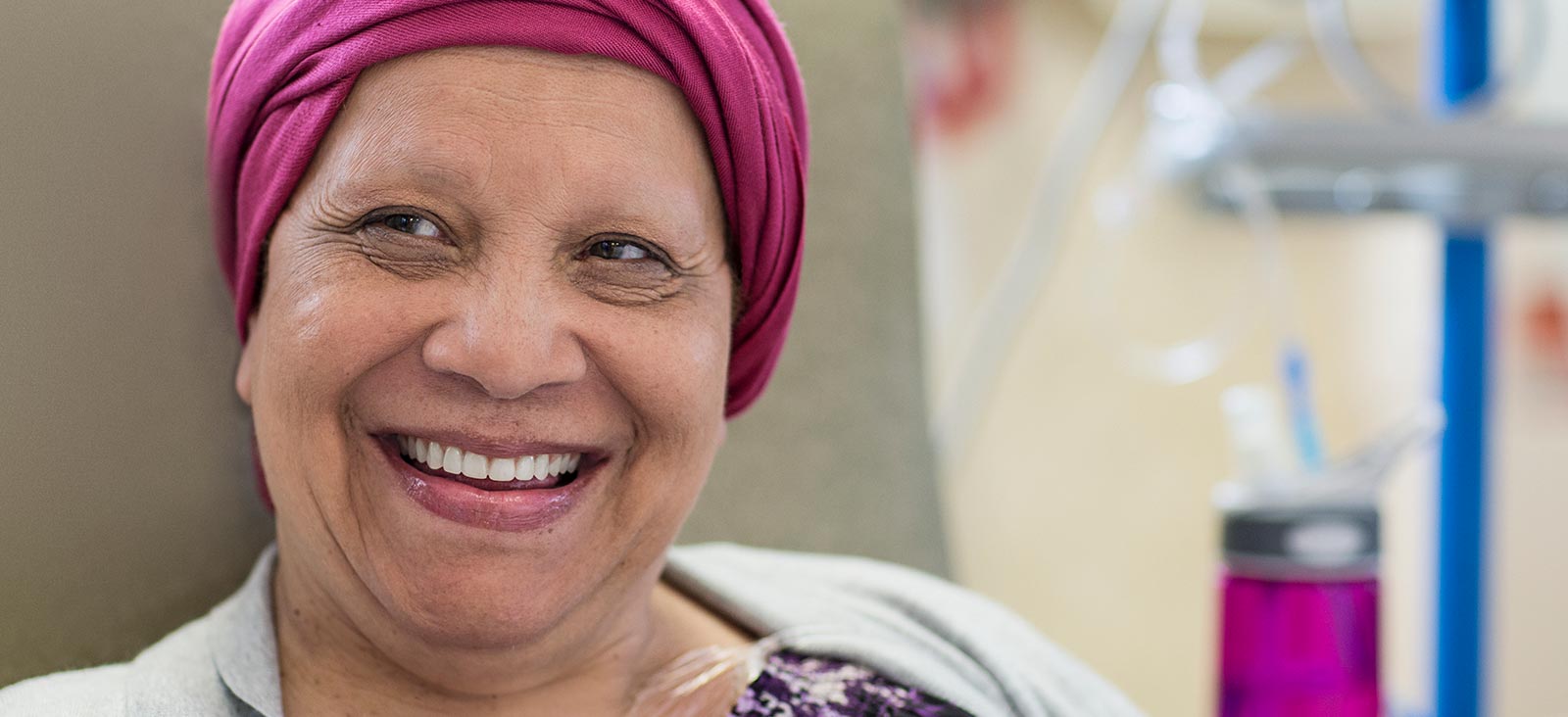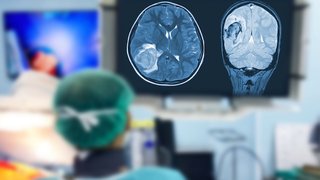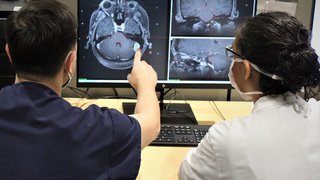What Should Patients Expect During Treatment?
UT Southwestern is equipped with the latest diagnostic tools. The rapid advancement of imaging techniques and technologies has enabled our specialists to determine the location, shape, and size of brain and spinal cord tumors with an unprecedented level of precision.
Imaging services include:
- Magnetic resonance imaging (MRI): The Mary Nell and Ralph B. Rogers Magnetic Resonance Imaging Center provides state-of-the-art MRI and spectroscopy services for our patients with cancer.
- 2-Hydroxyglutarate (HG) MRI: 2-HG MRI is a novel imaging technique specifically for isocitrate dehydrogenase (IDH)-mutated gliomas.
- Diagnostic imaging clinical trials: In collaboration with UT Southwestern’s Advanced Imaging Research Center (AIRC), we offer a number of diagnostic research trials to evaluate new imaging techniques to detect brain tumors, including magnetic resonance spectroscopy (MRS) and arterial spin labeling (ALS).
- Positron emission tomography (PET): This scanning technique enables imaging of metabolic processes occurring in the body and brain. Besides providing a valuable tool for early detection and diagnosis of cancer, PET also provides a way to predict whether tumors will respond to various forms of cancer treatment and can help physicians measure how responsive tumor cells have been to treatment.
UT Southwestern’s MRI and PET facilities are among the most advanced in the nation and enable us to provide patients with the best possible medical care.
Treatment for neurologic cancers or cancer-related conditions can include diagnostic imaging, surgery, stereotactic and conventional radiation therapy, and chemotherapy. Physicians formally meet once a week on a multidisciplinary neuro-oncology tumor board to discuss each patient’s condition, determine the best treatment approaches, and coordinate the ensuing care.
Our clinicians and researchers are nationally recognized leaders in the development and use of radiation therapies to precisely target brain and spinal cord tumors while sparing surrounding tissues.








